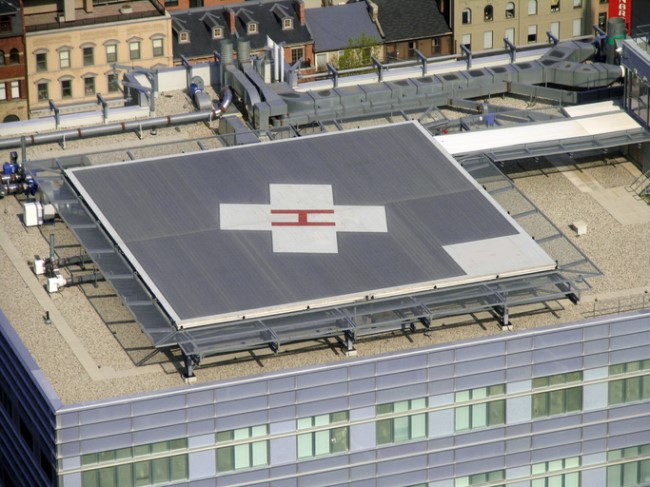The Best Hospital HVAC Systems For Indoor Air Quality
In hospitals, indoor air quality is a considerable concern that affects its operations and patients’ health. Hospitals deal with all manner of pathogens. It’s thus vital to go for a system that not only maintains the right temperature but also controls the air quality.
Note that hospitals have many people, including patients coming in and out all day. The idea is to create an environment that doesn’t cause your patients any health risks or discomfort. What should you consider in hospital HVAC systems?
Understand What is Ideal for Hospital HVAC Systems
Hospitals need to keep the temperature in the building at the correct levels for a healthy patient environment. It’s also essential that the system maintains low humidity and high air quality. Factors that determine indoor air quality (IAQ) are:
- Humidity levels
- Temperature levels
- Presence of contaminants and pathogens in the air
- Quality of outdoor air that finds its way into the facility
Types of HVAC systems include
- Duct Free (Mini-Split)
- Packaged Heating and Air
- Heating and Cooling Split Systems
- Hybrid Split System
A hospital HVAC system should control all these factors to ensure optimal air circulation. Critical considerations for air conditioning and ventilation systems include:
A System That Meets the Recommended Filtration Standards
The spread of pathogens such as viruses is a genuine concern in hospitals. Proper air filtration is key to preventing the spread of germs. The filters should remove any airborne particles that could cause illnesses without affecting air quality. Filtration systems that meet HEPA standards effectively remove microscopic particles from the air. These systems can also keep pollen, dust mites, and pet dander from circulating in the building.
When choosing a new filter, do not compromise on quality or efficiency. Opt for heavier duty models when the hospital is dealing with a high number of patients or when it experiences high levels of air contamination. The design should be robust enough to handle frequent cleaning and replacement. This should not compromise effectiveness.
A System that Complements the Hospital’s Ventilation System
The ventilation system is one of the most critical parts of a hospital’s HVAC system. It provides fresh air in and out and controls temperature levels.
The best ventilation systems must work well with the HVAC systems. This is to ensure consistent coverage across all parts of the hospital building. Besides, it should also have an impact on IAQ levels by removing potential contaminants from the air.
An Energy-Efficient System
In a hospital setting, energy consumption is often high due to diverse operations, many people in the building, AC and heating systems. HVAC systems are among the largest energy consumers in hospitals, accounting for approximately 30% of power consumption.
A system that is energy efficient has several advantages over a traditional HVAC system. This includes lower operating costs and reduced heat loss. In addition to cutting down on electricity consumption, it can also reduce CO2 emissions by more than 80%. Energy efficiency can also positively impact IAQ levels by making it easier to control temperature levels.
An Integrated System
Hospital buildings accommodate patients with different needs. This includes those requiring ventilators or medical devices that need specific temperature control. As a result, it is vital to have a system that integrates with the current operations. The best HVAC systems can provide the highest level of comfort without compromising the needs of other systems in the building.
The Ability to Control Air Movement from Isolated Areas
Pressure rooms typically have mechanical systems that maintain pressure at desired levels. Negative pressure rooms are standard in hospitals and are a huge concern because they can spread airborne diseases.
An HVAC system should provide the correct air movement without interfering with the set mechanical systems. Doing so prevents the spread of pathogens and airborne infections. Additionally, you want your HVAC system to control airflow. For example, you may have a central heating and cooling unit that never turns off, which means it’s hard to customize temperature requirements.
You need systems that allow people in different hospital areas to have customizable airflow levels, depending on the location demands. For example, an ICU may only need low-level airflow, while a patient’s room may require higher levels of air circulation. Besides, you want your HVAC system to be able to handle multiple types of material (for example, gas or steam). This allows hospitals with various operating rooms or laboratories that require different types of heating or cooling to use the preferred systems.
Return Air Capabilities
Another consideration in HVAC fresh air intake requirements is the ability to return air to the outdoors without spreading pathogens or airborne infections. You may want to use a system positioned in areas less frequented by people.
For example, you may want to use a system on the roof of a hospital to exhaust carbon monoxide and other gases from the building.
What Doesn’t Work in a Hospital Set Up
Some systems that don’t work in a hospital setup include:
A System that Only Controls the Temperature
Hospitals use temperature control systems to keep the room at a comfortable level. The problem with this is that it doesn’t address any concerns about air quality. It keeps the room at a specific temperature, so patients don’t feel too cold or hot.
A System That Focuses on Humidity Levels but Not Air Quality
Hospitals need dehumidification systems to lower the amount of moisture in the air. This helps prevent mold growth because less moisture means fewer places for mold spores to live and thrive. As long as it controls humidity levels, these systems should be sufficient.
The issue with these systems is that they can’t control dust particles and other pollutants from entering your healthcare facility from outside sources, such as nearby traffic or construction projects. These particles can cause respiratory issues in patients with compromised immunity.
Consult Commercial HVAC Experts
To install the correct system that meets HVAC guidelines, talk to experts. At Industrial Mechanical Contractors INC, we are experts in installing, maintaining, repairing, and replacing hospital HVAC systems.
We will help you meet your air quality demands, industry standards, and legal requirements. Call or contact us for more information on the services we can offer your establishment.






